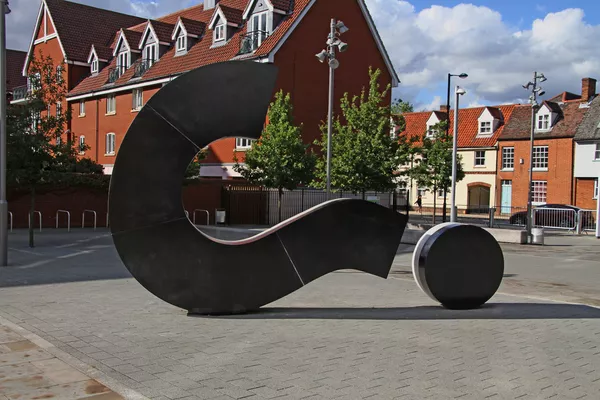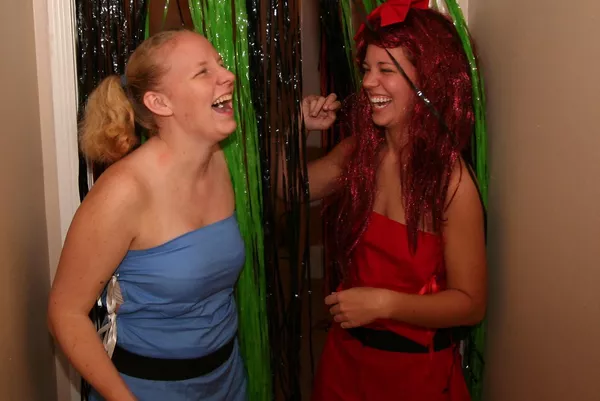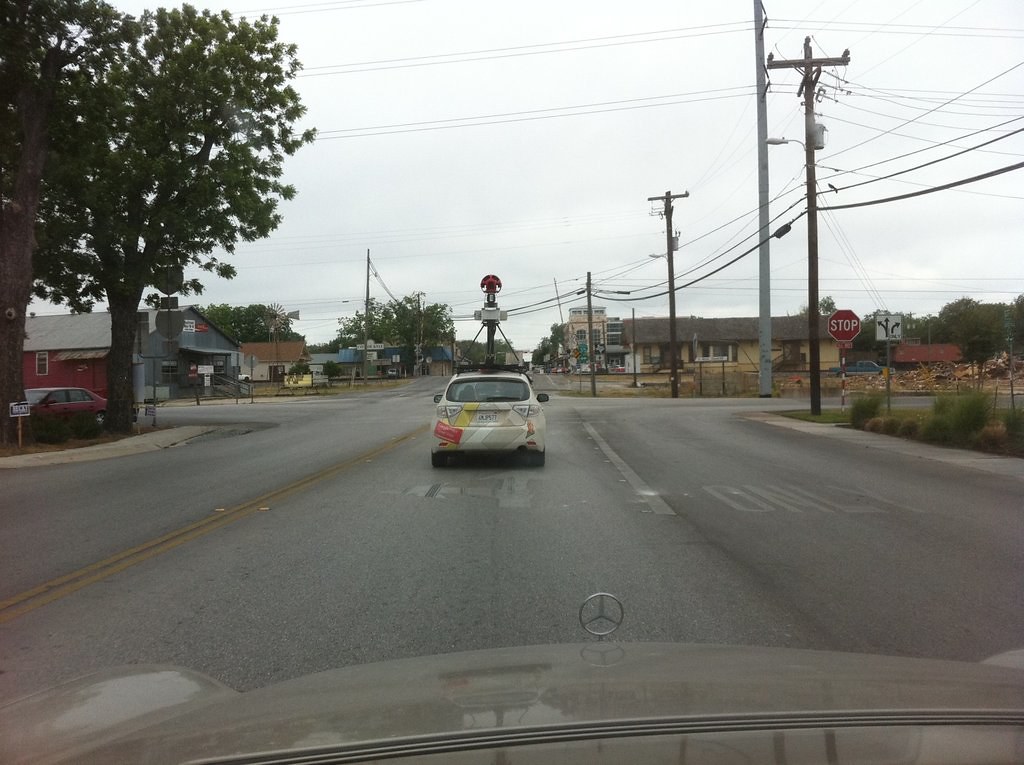 verybody is enamored of the ending of Beckett’s play Waiting for Godot, where the two main characters say, basically, it’s time to move on, and then they don’t go anywhere. They’re stuck, stopped (or is it faithful to Godot?).
verybody is enamored of the ending of Beckett’s play Waiting for Godot, where the two main characters say, basically, it’s time to move on, and then they don’t go anywhere. They’re stuck, stopped (or is it faithful to Godot?).
What if we thought about the play a little differently? The two vagabonds have come from somewhere, and they end up on a country road, with a tree and a moon, thinking that they may (or may not) be in the right place for a rendezvous with Godot. They have come from somewhere and they’ve ended up here. We could say that the two down and out individuals are seeking to be rescued, or saved, which is what they think Godot may do for them. But how can this be if Godot never appears? So, the question could be reframed as this: How (and what) are the two doing without Godot?

ASIDE
Some of you may remember that I had to learn a new way of helping students structure a paper when I taught in France. I learned that the teacher would ask the students a question, such as, “What are the tramps waiting for?” Then, the students have to come up with a different, related question called la problématique. In our case, the first question, “What are the tramps waiting for,” has to have a problématique, a related question which is this: “What (and how) are they doing without Godot?” Now, French students live in dread of a certain comment in the margin, hors sujet. This means literally, “outside of the subject,” or “off topic,” indicating that their related question (which they slaved over) was in no way germane to the original question. My daughter had no patience for this double questioning. Just ask what you want to know, was her esteemed opinion. I hope you, Dear Reader, can see the relationship between the two questions I have posed, and at the worst, you now have a snappy come-back: hors sujet!
WHAT ARE THEY DOING
Well, the vagabonds laugh, complain, get mad, eat, wonder what happened to Godot, experience shock at the behavior of Pozzo and Lucky, and they have fun. Lucky and Pozzo just appear, knowing nothing about Godot.

This sounds familiar to me: we laugh, complain, get mad, eat, and wonder why in the world whatever it is that we are trying to do hasn’t materialized. I submit to you that everybody has their edge; it could all be easier, shorter, longer, healthier, etc. For the writer it’s fame and fortune, well, ostensibly. I think Beckett was on to something in his suggestion that waiting is the existential condition.
My point is that the two vagabonds in Beckett’s play don’t stand at attention or lie in wait. One of them actually marched off and returned. It is true they are in reduced circumstances and disappointed by the failure of Godot to appear. But remember that they are forever in the play, their ordinary, and sometimes miserable, travails showcased, held up for attention, admiration, pity.

My other point is that while the two vagabonds are waiting, they are distracted by two strangers who cross their paths. And this is super cool: they are distracted. I would like to promote the art of the distraction as a get out of jail free card in this world of waiting. To wit, I would like to recount a Godot moment.
READER: Finally.
ME: Come on, now. You can’t just fling a Godot moment out into the cosmos like some frisbee without understanding what a Godot moment even means.
READER: hors sujet!
ME: Not at all! It is a cosmic play.
READER: Really?
ME: Read on!!
GODOT MOMENT
I was headed over to the Eastman Theatre, a fancy performance place for dedicated musicians offered by the Eastman School of Music. I wanted to see a performance by a man who had played with Bill Frisell, quite a well-known guitarist who has recorded an album called Ghost Town, something I listened to quite a lot while I was figuring out the contours of the novel I am working on. I thought that kind of music would do me good; it would help me keep breathing life into the novel. Believe me, a novel takes a lot of life.
The Eastman Box Office didn’t answer when I called to ask about masks. Undaunted, I set out. Where to park? Easy, in a lot nearby. Except that the parking lot had been taken over for the Rochester Fringe, a lively theatre and musical fest in Rochester. Damn. What to do?

Automobile
I drove around. I could park in so-called East Jesus, on a residential street rather far from the venue, but at night? So I drove around some more. I stumbled upon an Inn, (as far as you can stumble when you’re in a car), a well-lit distance from the theatre. Now valet parking was only available to patrons, so I asked the valet gentleman for ideas. Well, if I was willing to part with ten dollars, and give it directly to him, I could park right there at the inn. And I was and I did. I would like to acknowledge the usefulness of valets here and to confess that is what I have always wanted: a valet, just like in the Russian novels.
Now I was hurrying up the street, trying not to be late for the Eastman, when what to my wondering ears should appear but a jazz quartet, delightful to hear. They were installed outside a bar, a few steps below street level with a crowd of only three people. But the sound, the sound. The mix was just perfect. Those of you recording buffs out there know what I mean. The instruments were perfectly balanced: a guitar, a sax, a bass and a drum. I’m like, whoa Nellie, and slowed down, and listened and stayed to clap when the song ended. The song, written by Joe Zawinul and performed here by Cannonball Adderley is called, “Mercy, Mercy, Mercy.” (Joe Zawinal co-founded Weather Report, is a brilliant pianist, contributed to jazz fusion (jazz + rock) and played with Miles Davis.)
Now instead of Joe Zawinul’s piano out there on the patio, we had this righteous electric guitar, bass, drums and sax. Only three people? How can this be? So I went down to the bar adjacent to the patio. The bartender told me everything while pouring me a glass of Chardonnay. A professor from the Eastman School of Music was the sax player. He’d invited some of his mates to join him for their contribution to the Rochester Fringe. Well! I took my wine and sat outside at a picnic table, where we all heard some very fine jazz, from John Coltrane and Miles Davis, as the audience grew and grew. The owner of the Charleston Place, as it is called, sat down at my table. We got to talking and she showed me pictures of her grape vines in West Irondequoit, NY, a sleepy little place on the outskirts of Rochester, but with grapevines in the backyard. Who knew? She also pointed out that alligator was on the menu. I don’t know about that!
The pure joy of the unexpected in the midst of a very worthy ambition, which was to make it over to the concert. (Which I never did get to.) I was just like the vagabonds: intent on my concert, just as they were intent on “Godot,” who increasingly seems like a stand in for all that we yearn for. And life interrupted. So, Dear Reader, likewise I have a directive for you. “Get distracted, people. Have some fun!”
I was going to make a pithy comment, liking your Godot moment, but I was distracted.
What a wonderful idea: get distracted. Have some fun.
Easy to say not so easy to apply…
I take that advise, at least for the coming weekend
Thank you, Kore. Simple advice and ideas are the best to put in practice
“Get distracted. Have some fun!” What great advice, for anyone waiting for anything!
Merci, Chère Kore!
Je reconnais la danse de la vie et de l’instant que tu pratiques si bien!